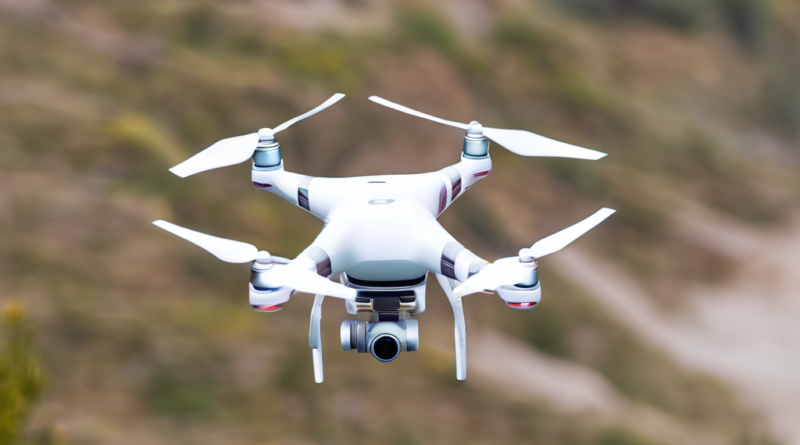Choosing the Right Drone for Your Needs
Choosing the Right Drone for Your Needs
The drone market has exploded in recent years, offering a wide variety of models tailored to different uses and preferences. Whether you’re a hobbyist, a professional photographer, or a tech enthusiast, selecting the right drone can significantly enhance your experience. In this guide, we’ll explore the critical factors to consider when choosing a drone that meets your specific needs.
Understanding Your Purpose
The first step in choosing the right drone is understanding why you want one. Drones serve various purposes, from aerial photography and videography to racing, surveying, or simply recreational flying. Identifying your primary use will help narrow down the options and ensure you invest in a drone that aligns with your goals.
Photography and Videography
If capturing stunning aerial shots is your main objective, consider drones equipped with high-quality cameras. Models like the DJI Mavic Air 2 or the Autel Robotics EVO Lite+ offer features such as 4K video recording, image stabilization, and advanced shooting modes.
Recreational Use
For those wanting to fly drones for fun, without a hefty price tag, options like the Ryze Tello are great for beginners. These drones offer a balance of ease of use and basic functionalities, making them ideal for learning the ropes.
Professional Applications
For industries such as surveying or agriculture, more specialized drones like the DJI Matrice 300 RTK or the Parrot Anafi USA provide advanced features like thermal imaging, mapping capabilities, and longer flight times.
Key Features to Consider
Once you’ve identified your primary use, it’s essential to evaluate specific features that align with your needs. Here are some key features to consider:
Camera Quality
The camera is a pivotal feature for any drone focused on photography or videography. Look for drones with at least a 12-megapixel camera and 4K video capability. Advanced drones offer adjustable apertures and larger image sensors for better low-light performance.
Flight Time and Range
Battery life can significantly impact your drone’s usability. Most consumer drones offer 20-30 minutes of flight time, while professional models can reach up to 55 minutes. Additionally, consider the range, which varies from a few hundred meters to several kilometers.
Ease of Use
Especially for beginners, ease of use is a crucial factor. Drones with features like GPS, return-to-home (RTH), and obstacle avoidance make flying more straightforward and safer. The DJI Mini 3 Pro is a user-friendly option with intuitive controls.
Portability
If you plan to travel with your drone, portability is essential. Compact, foldable models like the DJI Mavic Mini are easy to carry and offer excellent performance without the bulk.
Check Prices On Amazon
Budget Considerations
Your budget will play a significant role in your drone selection. Drones range from under $100 for basic models to several thousand dollars for high-end professional drones. Here’s a breakdown:
Entry-Level Drones
Priced below $300, these drones offer basic features suitable for beginners or casual users. The Potensic T25 is a popular choice with decent performance at an affordable price.
Mid-Range Drones
Ranging from $300 to $1000, mid-range drones like the DJI Air 2S provide advanced features and better camera quality, suitable for enthusiasts and semi-professionals.
High-End Drones
These drones, priced above $1000, cater to professionals needing top-tier performance and features. The DJI Phantom 4 Pro V2.0 is a favorite among professional photographers and filmmakers.
Regulatory Considerations
Before purchasing a drone, familiarize yourself with local regulations. In many countries, drones over a specific weight require registration, and there are rules about where and how you can fly them. The Federal Aviation Administration (FAA) in the United States, for example, mandates registration for drones weighing over 0.55 pounds.
Future-Proofing Your Investment
Technology evolves rapidly, and drones are no exception. Investing in a drone with upgradable components or firmware updates can extend its lifespan and keep it relevant as features improve. Consider brands known for regular updates and support.
Modular Design
Some drones, like the Skydio 2+, offer modular designs where you can upgrade cameras or sensors as new technology becomes available, providing longevity to your investment.
Check Prices On Amazon
Conclusion
Choosing the right drone requires careful consideration of your specific needs, budget, and the features most important to you. By understanding your primary use, evaluating key features, and considering future-proofing options, you can select a drone that will provide both enjoyment and utility for years to come. Whether you’re capturing breathtaking aerial views or exploring new technological horizons, the right drone is out there waiting for you.
Happy flying!

